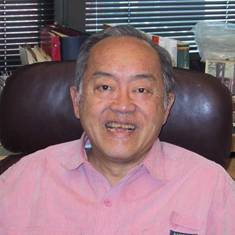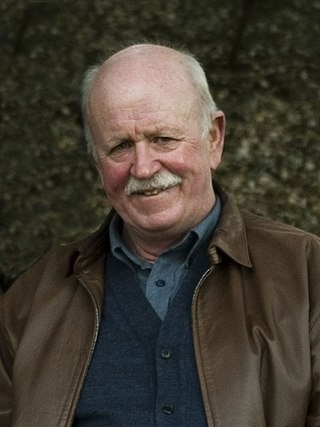
Rudolf Emil Kálmán was a Hungarian-American electrical engineer, mathematician, and inventor. He is most noted for his co-invention and development of the Kalman filter, a mathematical algorithm that is widely used in signal processing, control systems, and guidance, navigation and control. For this work, U.S. President Barack Obama awarded Kálmán the National Medal of Science on October 7, 2009.

Hendrik Wade Bode was an American engineer, researcher, inventor, author and scientist, of Dutch ancestry. As a pioneer of modern control theory and electronic telecommunications he revolutionized both the content and methodology of his chosen fields of research. His synergy with Claude Shannon, the father of information theory, laid the foundations for the technological convergence of the Information Age.
Petar V. Kokotovic is professor emeritus in the College of Engineering at the University of California, Santa Barbara, USA. He has made contributions in the areas of adaptive control, singular perturbation techniques, and nonlinear control especially the backstepping stabilization method.

Eduardo Daniel Sontag is an Argentine-American mathematician, and distinguished university professor at Northeastern University, who works in the fields control theory, dynamical systems, systems molecular biology, cancer and immunology, theoretical computer science, neural networks, and computational biology.
Roger Ware Brockett was an American control theorist and the An Wang Professor of Computer Science and Electrical Engineering at Harvard University, who founded the Harvard Robotics Laboratory in 1983.
The Richard E. Bellman Control Heritage Award is an annual award given by the American Automatic Control Council (AACC) for achievements in control theory, named after the applied mathematician Richard E. Bellman. The award is given for "distinguished career contributions to the theory or applications of automatic control", and it is the "highest recognition of professional achievement for U.S. control systems engineers and scientists".

Yu-Chi "Larry" Ho is a Chinese-American mathematician, control theorist, and a professor at the School of Engineering and Applied Sciences, Harvard University.
Kumpati S. Narendra is an American control theorist, who currently holds the Harold W. Cheel Professorship of Electrical Engineering at Yale University. He received the Richard E. Bellman Control Heritage Award in 2003. He is noted "for pioneering contributions to stability theory, adaptive and learning systems theory." He is also well recognized for his research work towards learning including Neural Networks and Learning Automata.
Mustafa Tamer Başar is a control and game theorist who is the Swanlund Endowed Chair and Center for Advanced Study Professor of Electrical and Computer Engineering at the University of Illinois at Urbana-Champaign, USA. He is also the Director of the Center for Advanced Study.

Gene F. Franklin was an American electrical engineer and control theorist known for his pioneering work towards the advancement of the control systems engineering – a subfield of electrical engineering. Most of his work on control theory was adapted immediately into NASA's U.S. space program, most famously in the control systems for the Apollo missions to the Moon in 1960s–1970s.
Harold Joseph Kushner is an American applied mathematician and a Professor Emeritus of Applied Mathematics at Brown University. He is known for his work on the theory of stochastic stability, the theory of non-linear filtering, and for the development of numerical methods for stochastic control problems such as the Markov chain approximation method. He is commonly cited as the first person to study Bayesian optimization, based on work he published in 1964.
Jeff S. Shamma is an American control theorist. He is the Department Head and Professor of Industrial and Enterprise Systems Engineering at the University of Illinois Urbana-Champaign. Formerly, he was a Professor of Electrical engineering at the King Abdullah University of Science and Technology. Before that, he held the Julian T. Hightower Chair in Systems & Control Systems and Controls at the Georgia Institute of Technology. He is known for his early work in nonlinear and adaptive control, particularly on gain scheduling, robust control, and more recently, distributed systems.
Sanjoy Kumar Mitter was a Professor in the Department of Electrical Engineering and Computer Science at MIT who was a noted control theorist.

Dimitri Panteli Bertsekas is an applied mathematician, electrical engineer, and computer scientist, a McAfee Professor at the Department of Electrical Engineering and Computer Science in School of Engineering at the Massachusetts Institute of Technology (MIT), Cambridge, Massachusetts, and also a Fulton Professor of Computational Decision Making at Arizona State University, Tempe.
Manfred Morari is a world-leading control theorist who has made pioneering contributions to the theory and applications of Model Predictive Control, Internal Model Control (IMC) and Hybrid Systems. His book on Robust Process Control is considered to be definitive text on the subject. He is currently Peter and Susanne Armstrong Faculty Fellow at the University of Pennsylvania. He received his Ph.D. in Chemical Engineering from the University of Minnesota in 1977. Dr. Morari held positions at the University of Wisconsin, Madison (1977–1983), the California Institute of Technology (1983-1991), and the Swiss Federal Institute of Technology in Zurich ETH Zurich. He is considered a pioneer in field of Model Predictive Control, Control of Hybrid Systems, Internal Model Control (IMC), and robust control.
Pravin Pratap Varaiya was Nortel Networks Distinguished Professor in the Department of Electrical Engineering at the University of California, Berkeley.

Arthur James Krener is an American mathematician. He is a distinguished visiting professor in the department of applied mathematics at the Naval Postgraduate School. He has made contributions in the areas of control theory, nonlinear control, and stochastic processes.
Karl Henrik Johansson is a Swedish researcher and best known for his pioneering contributions to networked control systems, cyber-physical systems, and hybrid systems. His research has had particular application impact in transportation, automation, and energy networks. He holds a Chaired Professorship in Networked Control at the KTH Royal Institute of Technology in Stockholm, Sweden. He is Director of KTH Digital Futures.

Munther A. Dahleh is the William Coolidge Professor of electrical engineering and computer science and director of the Massachusetts Institute of Technology (MIT) Institute for Data, Systems, and Society (IDSS).
Frank L. Lewis is an American electrical engineer, academic and researcher. He is a professor of electrical engineering, Moncrief-O’Donnell Endowed Chair, and head of Advanced Controls and Sensors Group at The University of Texas at Arlington (UTA). He is a member of UTA Academy of Distinguished Teachers and a charter member of UTA Academy of Distinguished Scholars.







